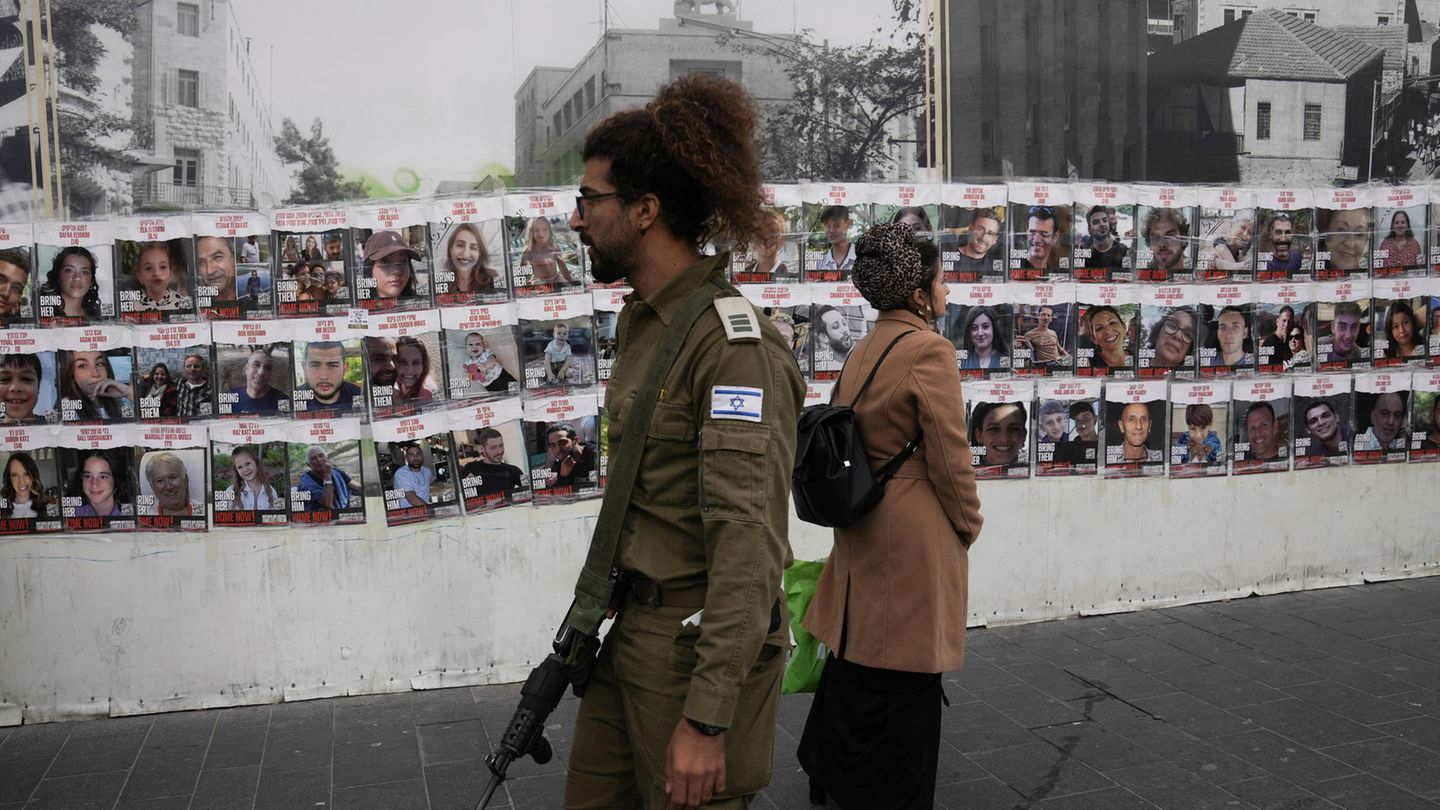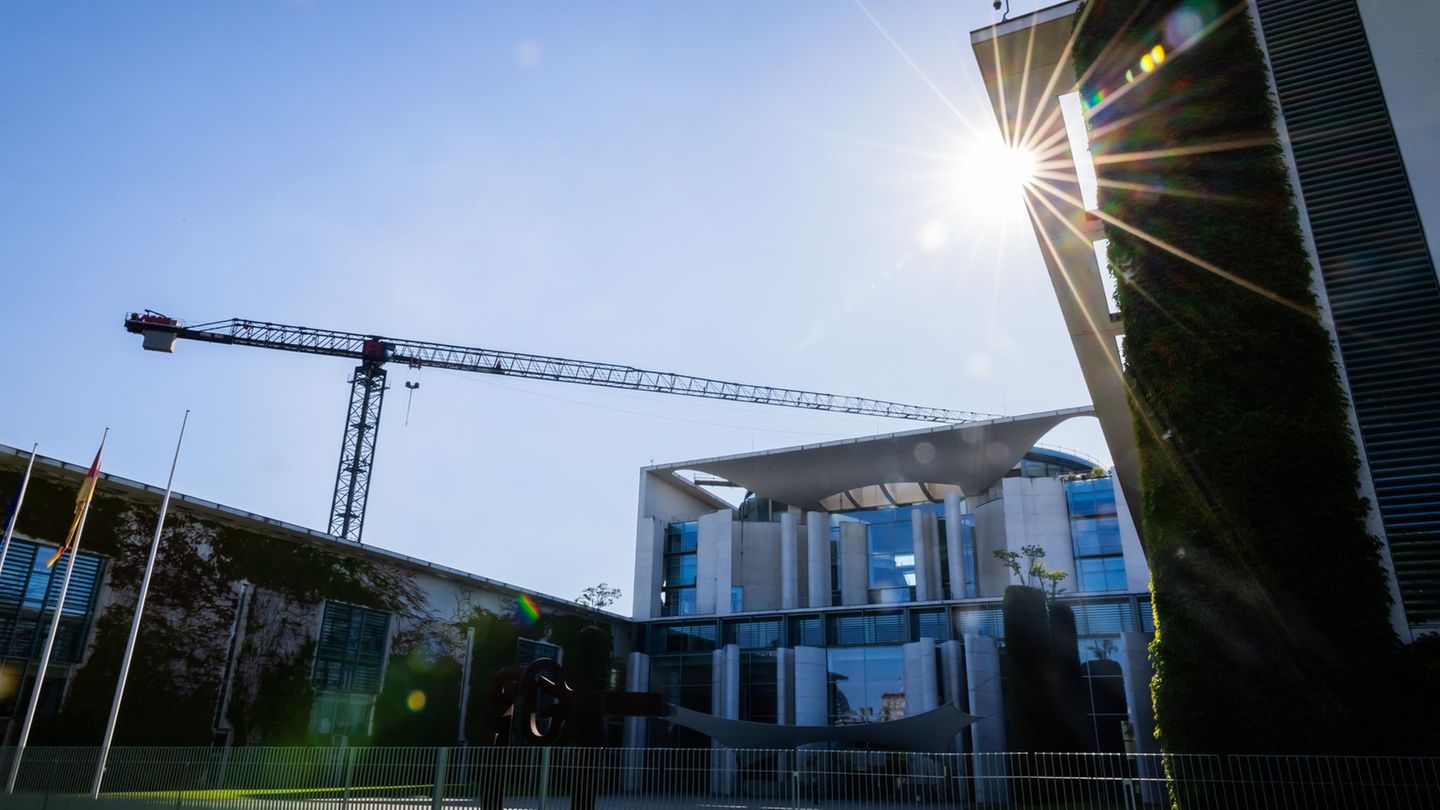Opinion
In the worst massacre of Jews since the Holocaust, hundreds of Israelis were taken hostage. But outside the country, hardly anyone is interested in their fate – instead, Palestinian flags are waved.
10,000 Parisians protested for his release in June 2010. He was made an honorary citizen of the French capital, an honorary citizen of Rome, and an honorary citizen of San Francisco, Pittsburgh and New Orleans. The Vatican intervened, and his father even appeared before the United Nations. Gilad Shalit was released after 1,942 days. The Israeli sergeant major was in the hands of Hamas for five years and four months. Half the world was concerned about his fate.
Not one, but more than 100 hostages
And today, 13 years later, more than 100 people are being held captive by the Islamists, but the protests are not for their release, but against Israel. Or for the Palestinians. Not necessarily for Hamas, which rules the Gaza Strip, but Palestinian flags fly from universities, cars and balconies. Hardly anyone outside Israel seems to be interested in the people who have been vegetating in fear of death in some dungeon since last October.
Hamas fighters invaded Israel in an unprecedented terrorist attack, raping and killing 1,200 men, women and children, and abducting 250. It was the largest massacre of Jews since the Holocaust. Some hostages have since been released, others, such as the German-Israeli Shani Louk, were later found dead. Solidarity with those still alive? Sympathy? Encouragement? None.
Hostage video shocks Israel
In Israel itself, people protest regularly and loudly for the release of their people, but Benjamin Netanyahu’s government does not want to negotiate with Hamas. It wants to destroy the organization at almost any cost. “We will continue to do everything we can to bring the hostages home. The cruelty of the Hamas terrorists only strengthens my resolve to fight with all my strength for the elimination of Hamas so that what we saw tonight can never be repeated,” said Prime Minister Netanyahu in response to a horrific hostage video.
The parents of five kidnapped female soldiers have released footage that has shocked the country: The video shows injured young women, some of them covered in blood. They are tied behind their backs and are being shouted at and threatened by heavily armed terrorists. The images are from October 7, the day of the massacre. The hostage families’ forum calls them “a damning testimony to the nation’s failure to bring home the hostages who have been abandoned for 229 days.”
1000 Palestinians against one Israeli
At least the disturbing footage has prompted the Israeli war cabinet to resume hostage negotiations. But it is doubtful whether there is any real interest in doing so. Right-wing Israeli government members, including Benjamin Netanyahu, believe that such talks would increase Hamas’s status and be sold as a triumph.
The liberation of Gilat Shalit in 2011 serves as a bad example. At that time, Israel released more than 1,000 Palestinian prisoners in return. Among them was Yahya Sinwar, who later became head of Hamas in the Gaza Strip and mastermind of the October 7 massacre. Netanyahu does not want to make such a “bad” deal again. He was already head of government at the time.
The fate of the hostages and the war will seal his political fate, whether he wants it or not. If he actually manages to break the power of Hamas (which is unlikely), the remaining prisoners are unlikely to survive Israel’s victory. But the government in Tel Aviv does not want any kind of success for Hamas through negotiations either.
For the hostages or for the Hamas campaign
The dilemma is almost impossible to resolve, which is why Netanyahu and his war cabinet will have to decide: for the hostages or for the continued campaign against Hamas. So far, the prime minister has remained true to his unrealistic goal of freeing the prisoners by destroying the Islamists. It is a cynical endgame in his political fight for survival – especially since he knows: Why would his opponent Sinwar have any interest in returning his most valuable treasure unnecessarily?
The hostages face a bitter fate: they are not only used as bargaining chips but also as “false” victims.
Source: Stern
I have been working in the news industry for over 6 years, first as a reporter and now as an editor. I have covered politics extensively, and my work has appeared in major newspapers and online news outlets around the world. In addition to my writing, I also contribute regularly to 24 Hours World.




